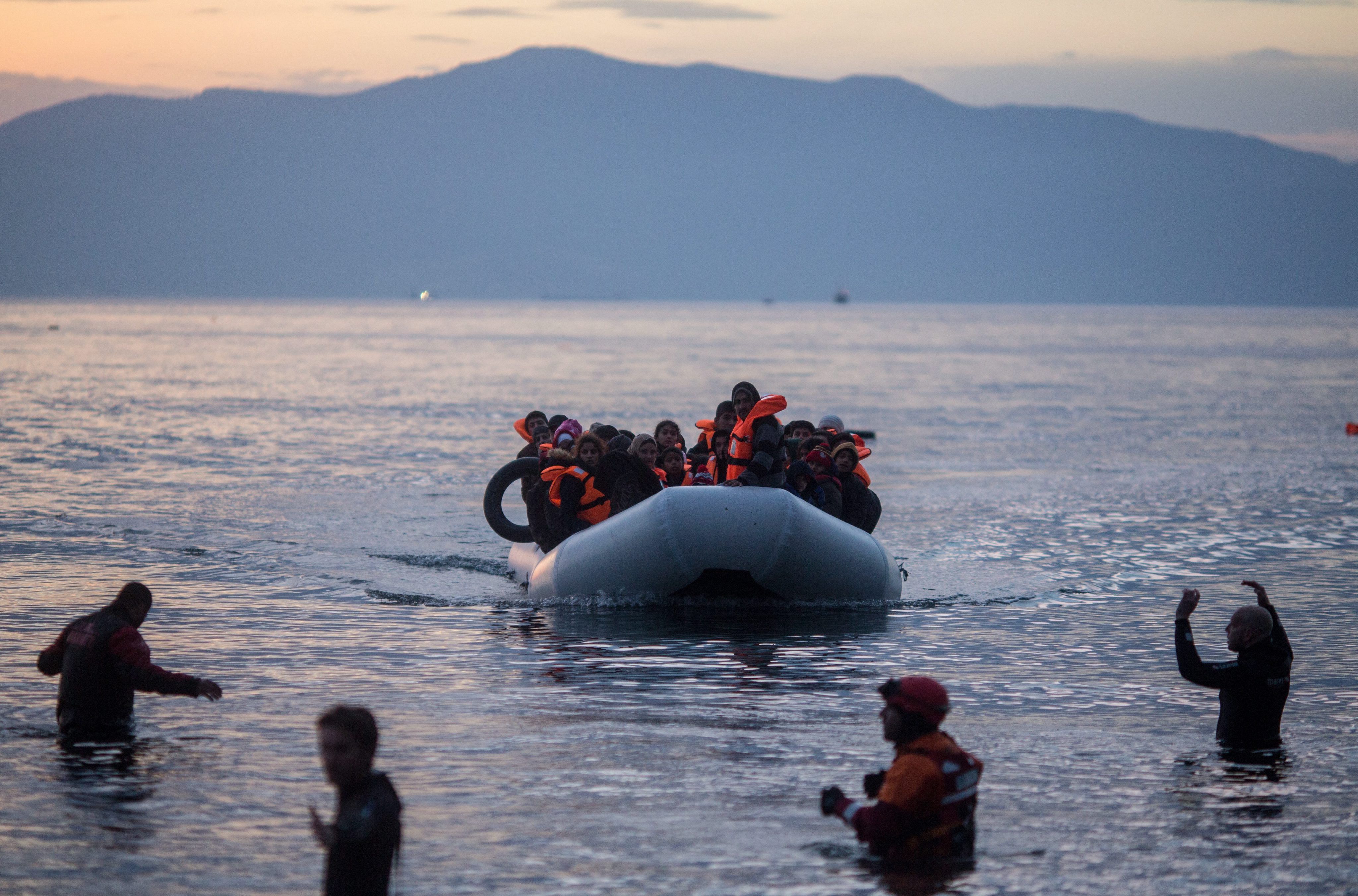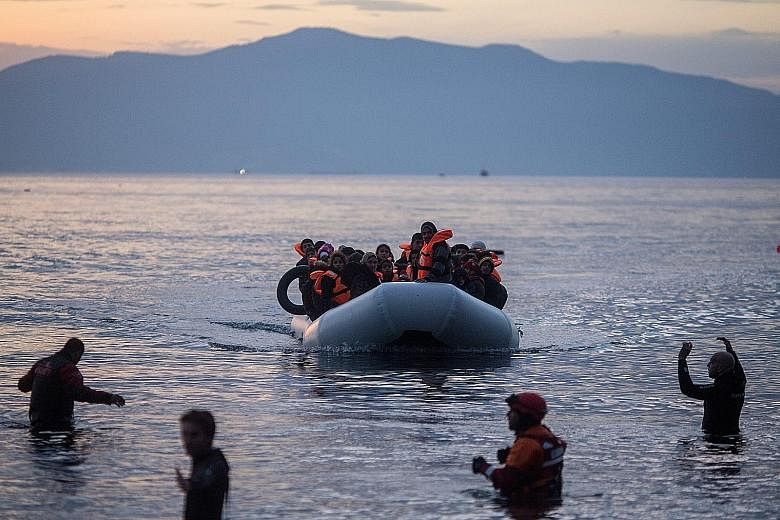Jonathan Eyal German Chancellor Angela Merkel is struggling to gain European acceptance for a deal she brokered with Turkey to stop refugees from washing up on Europe's shores.
But the agreement, which she single-handedly negotiated earlier this week with Turkish Prime Minister Ahmet Davutoglu, could well be torn apart by other European leaders even before it has any chance of being implemented.
Turkey's cooperation is essential, since the country is the conduit to a majority of the 1.1 million refugees who entered Europe last year, as well as the approximately 130,000 additional migrants who sought asylum during the first two months of this year. But there are sharp disagreements over the price Europe should pay for Turkey's assistance.
Under an initial deal painstakingly negotiated by officials headed by European Union president Donald Tusk, Turkey would have been offered €3 billion (S$4.6 billion) to seal its borders. Turkey was also promised eventual visa-free travel for its own citizens, and a resumption of negotiations for full EU membership.
But when EU leaders gathered in Brussels on Monday to approve that deal, Dr Merkel sprang a surprise: She negotiated a separate arrangement with her Turkish counterpart, without consulting her colleagues. Under this German agreement, the money offered to Turkey will be doubled to €6 billion, Turkish citizens will gain visa-free travel to the EU by June this year and negotiations for Turkey's EU membership will begin almost immediately.

The most controversial aspect of the arrangement is a promise that Turkey will take back all the migrants who cross its borders to Europe and, in return, the Europeans will admit one Syrian refugee currently in Turkish camps for every migrant returned from Europe.
Dr Merkel has defended this highly unusual arrangement as a "qualitative step forward" and a "breakthrough", because those to be deported from Europe would be citizens of many countries who are deemed to be just economic migrants, while those to be chosen for European resettlement from Turkey would be Syrians who genuinely flee war and persecution.
She is also calculating that, once the deal gets under way and it becomes clear that Europe is no longer welcoming migrants, their overall numbers would go down, so the total number of Syrian refugees which the EU would have to take in exchange for those deported would be small - "the days of disorganised migration are over", Dr Merkel claimed.
The snag is that most of her European counterparts who have to shoulder the burden of this arrangement are furious with her and have little desire to accept the deal.
EU leaders resent being dictated to by the same German head of government who always preaches the need for European "solidarity". Particularly aggrieved are the Austrians, Germany's immediate neighbours, who were pushing for the closure of Europe's frontiers without any obligation to accept new asylum seekers. The Austrians were publicly snubbed by Dr Merkel, who told journalists in an uncharacteristic outburst that she "has nothing to thank Austria for".
Dr Merkel may live to regret her conduct this week, for she needs the cooperation of all her EU colleagues to make the Turkish deal stick. And this now looks highly unlikely.
The East Europeans have already served notice that they will not accept even one Syrian refugee airlifted out of Turkey. Meanwhile, the consent of Cyprus, which has blocked initiatives on Turkey because Turkish troops are still on its territory, will be required to reopen membership talks with Turkey, and that will not come easily.
And there is stiff opposition even in Germany to the proposed abolition of visa requirements for Turkish citizens. The plan "doesn't even merit consideration", warned Mr Marcel Huber, secretary to the government of the German federal state of Bavaria, who belongs to Dr Merkel's ruling party.
Meanwhile, the United Nations High Commissioner for Refugees questioned the legality of a scheme for the mass deportation of people, claiming that this may run counter to international and EU laws. It is virtually certain that European courts will disallow many of the proposed deportations to Turkey, or at least delay the procedures for years, so the scheme will not succeed in deterring new refugees from coming, even if implemented.
Undaunted, Dr Merkel vows to push for a formal ratification of her Turkish deal at another EU summit planned for next week. But many European observers believe that she knows the agreement will not stick and that she negotiated it only in order to avoid a drubbing in next week's German regional elections, where anti-immigration parties look set to do well.
Seen from this perspective, therefore, the German-Turkish deal is less about shoring up Europe's frontiers, and more about protecting Dr Merkel's political career from the wrath of her own electorate.


